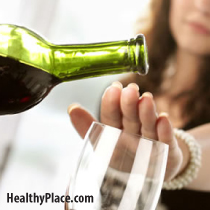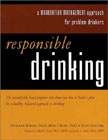A Sure Cure for a Hangover
The facts on the abuse of alcohol are sobering. According to the National Institute on Alcohol Abuse and Alcoholism alcohol consumption affect men and women differently, however some effects are the same in both genders.
 Here is a look at how the body of a man reacts:
Here is a look at how the body of a man reacts:
- Higher incidence of alcoholism.
- Higher rate of drunk-driving accidents. Male drivers who die in auto accidents are almost twice as likely to be legally drunk as women.
- Impotence (Now that's a good reason to quit!)
Here are some alcohol reactions specific to women:
- Gets sicker easier because of lower levels of enzyme that metabolizes alcohol.
- More likely to have interactions with medications.
- Drinking while pregnant can cause learning disabilities and low birth weight in babies.
In both sexes you are likely to find the same reactions:
- Alcohol affects neurotransmitters, affecting balance, speech and judgment.
- Over long periods, alcohol can damage liver cells and lead to potentially deadly cirrhosis.
- Alcohol can lead to dehydration.
- Evidence is growing that limited alcohol intake can decrease the risk of heart desease, however long-term alcoholics may suffer from a degeneration of the heart muscle.
- Alcohol can raise blood pressure, meaning it's not good for people with hypertension.
- Too much alcohol and you may pass out. In extreme cases. . . a person may never wake up. (Another good reason to quit!)
- Excessive alcohol can destroy a relationship!
Here is an easy way to tell if you are drinking too much. Truthfully answer these questions:
1 - Do you drink alone when you feel angry or sad?
2 - Does your drinking ever make you late for work?
3 - Does your drinking worry your family or partner?
4 - Do you ever drink after telling yourself you won't?
5 - Do you ever forget what you did while you were drinking?
6 - Do you get headaches or have a hangover after you've been drinking?
Any answer of "Yes" signals a potential problem.
Here are some tips to help you cut back or stop drinking:
- Don't keep alcohol at home.
- Drink slowly, with an hour between drinks. Drink something else between alcoholic drinks.
- Try not to drink one or two days a week, then for a full week.
- Learn to say no.
- Stay ACTIVE, doing something other than drinking.
- Watch out for temptations. Avoid people, places or times that make you drink.
Excessive drinking causes more than 100,000 deaths a year in the United States. Nearly one-forth are attributable to drunken driving. One in five deaths results from alcohol-related homicide or suicide.
In an article in "Alcohol Health and Research World," Robert Swift and Dena Davidson say if you are determined to drink, stick with vodka or gin (unless you are allergic to juniper berries in gin), avoiding brandy, whiskey or red wine. Beer was not mentioned.
For your own sake and that of others. . . NEVER DRINK AND DRIVE. Don't kid yourself. A one-once cocktail can stay in your system for as much as 8 hours. If you are stopped by the police, arrested and convicted, a DUI can drastically affect your life for years to come, e.g., drivers license suspension, heavy fines, the humiliation of jail time, higher insurance rates (IF you can get insurance!), attorney fees and more. It could cost "at least" $3,200 after a drunk-driving arrest. The risk is not worth it. Always have a designated driver or take a cab.
To decrease the intensity of a hangover, eat fruit or drink fruit juices. Bland foods with complex carbohydrates such as toast or crackers make help. Drink plenty of water, and get some sleep.
As for medications, take antacids, asprin, ibuprofen or napozin. According to Swift and Davidson, DO NOT use acetaminophen, because alcohol metabolism can enhance that drug's toxicity to the liver.
So. . . what is the "sure cure for a hangover?"
- Don't drink in the first place! -
 Alcohol abuse is involved in at least one traffic fatality every half-hour in the United States.
Alcohol abuse is involved in at least one traffic fatality every half-hour in the United States.
If you DO drink, remember: A cab ride home is much cheaper than a DUI.
Here is one man's sobering story.
The following form calculates an individual's blood alcohol content based on the quantity of beverages consumed, the alcohol percentage in each drink, the person's weight, and the time spent consuming the drink. Use numbers only (not % or oz., etc.). All results are close approximates.
- Fluid Ounces Consumed
(Beer = 12 oz. - Wine Glass = 4 oz. - 1 Shot = 1.5 oz) - Your Weight (Lbs)
- Alcohol Percentate in Beverage
(Beer = 4 or 4.5% Wine = 15 or 20% 1 Shot = 30 to 50%) - Hours Consuming Drink
Ways for Teens to Say "No!" When Offered a Drink
Source: Arizona Students Against Destructive Decisions (Formerly Students Against Drunk Driving)
- I'd rather OD on pizza.
- I become so witty no one can stand me.
- I don't need any more hair on my chest. (This line is especially effective for women).
- My weekends are made for something else.
- It doesn't bring out my best.
- Chocolate and alcohol don't mix.
- I might forget where I parked my mind.
- The last time I had a drink I wanted to attack a chicken.
- It makes me look stupider.
- I don't look good in a lampshade.
- If I want the high life, I'd rather go sky diving.
- I'm performing neurosurgery in the morning.
- It sloshes too much when I jog.
- Things are polluted enough already.
- I like me just the way I am.
- I'm saving my brain cells for science.
- I might forget all the witty things you're going to say tonight.
- If I'm going to blow my diet, I'll do it on junk food.
- My life is weird enough as it is.
- I think; therefore, I will not drink.
- I'm driving.
To purchase the following book, click on the book title link or book cover!
 Responsible Drinking: A Moderation Management Approach for Problem Drinkers - Frederick Rotgers, Psy.D., Marc F. Kern, Ph.D., & Rudy Hoeltzel - The scientifically based program that shows you how to build a plan for a healthy, balanced approach to drinking. Researched-based techniques halp you to discover the the extent of your problem and learn key strategies for controlling your behavior, identifying your triggers and special needs, and developing a healthier, more moderate lifestyle.
Responsible Drinking: A Moderation Management Approach for Problem Drinkers - Frederick Rotgers, Psy.D., Marc F. Kern, Ph.D., & Rudy Hoeltzel - The scientifically based program that shows you how to build a plan for a healthy, balanced approach to drinking. Researched-based techniques halp you to discover the the extent of your problem and learn key strategies for controlling your behavior, identifying your triggers and special needs, and developing a healthier, more moderate lifestyle.
Larry's Review: If you are truly intent on moderation or abstinence for the benefit of your health and your family, you will find an awesome collection of ideas and suggestions for taking responsibility for and being accountable for your drinking.
APA Reference
Staff, H.
(2008, December 10). A Sure Cure for a Hangover, HealthyPlace. Retrieved
on 2026, March 2 from https://www.healthyplace.com/relationships/celebrate-love/sure-cure-for-a-hangover


